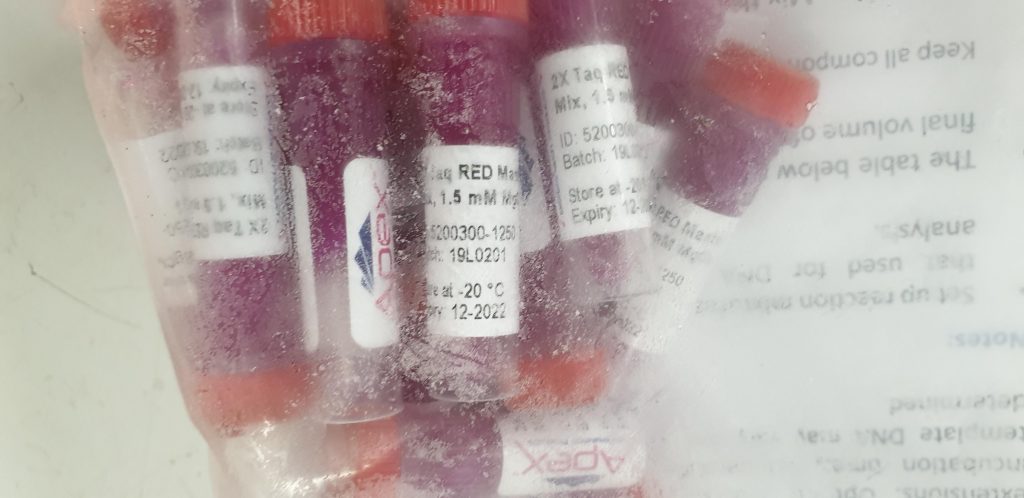
Each antibody is unique, and as such it will have specific storage conditions defined that guarantee its optimal stability. Usually, both monoclonal and polyclonal antibodies will bring together, on their respective technical sheets, the ideal conditions for their storage. These can vary depending on the type of antibody, purification to which it has been subjected, addition of preservatives … And although it is true that there are cases in which special conditions must be observed, most of the antibodies can be stored following the same general guides.
Today we bring you some tips to store the antibodies in optimal conditions depending on the composition of the sample. But first, let’s review some generalities:
- As a general rule, remember that it is not advisable to subject the antibodies to continuous freeze / thaw cycles that could lead to their denaturation and the formation of aggregates, thus reducing their ability to bind to the antigen . Therefore, it is always recommended to aliquot the reagent before freezing it.
- Another point to consider is concentration. Proteins, in general, are less susceptible to degradation when stored at high concentrations, ideally at 1mg / mL or higher. This is the reason why BSA or the like is often added as stabilizers, although this practice should be avoided when trying to conjugate the antibody, since it would compete with it reducing the efficiency of the conjugation.
- It should also be remembered that sodium azide, frequently used to stabilize this type of reagents, inhibits the enzymatic activity of HRP (eye with conjugation reactions) and is toxic to most organisms (to be taken into account if they are to be stained live cells or if the antibodies are to be used for in vivo assays). Sodium acid can be removed by dialysis (IgG MW: 150kDa – IgM MW: 600kDa – Sodium acid MW: 65Da)
- Regarding freezing, there is no significant advantage between doing it at -80ºC versus -20C. However, it is important to always place the vials with the antibodies in a deep place in the freezer, where temperature fluctuations due to the opening of the door affect as little as possible. Frost-free freezers should not be used , which prevent the formation of ice by continuous freeze-thaw cycles.
As we have already said, each reagent can have its individual characteristics, but in most cases some general guidelines can be established to store the antibodies correctly.
How To Store The Antibodies
1. ANTISUERO
- For short-term use (months): It is recommended to add azide (0.05%) and store at + 4ºC
- Long-term storage (years): Freeze at -20ºC or -80ºC
2. FRACTION IgG (Stable)
- For short-term use: add azide (0.02%) (or similar) and store at + 4ºC
- Long-term storage (years): Freeze at -20ºC or -80ºC
3. FRACTION IgY (Very stable)
- Store at + 4ºC by adding one of these two preservatives:
- Sodium azide (0.02%)
- Gentamicin sulfate (50ug / ml)
* Important: never freeze the egg yolk, as this could hinder the purification of the antibodies.
4. AFFINITY PURIFIED ANTIBODIES ( Unstable )
The stability of the affinity purified antibodies against different epitopes can vary greatly. It is necessary to establish specific storage conditions for each particular case based on the following alternatives:
- Freeze at -20ºC or -80ºC
- + 4ºC with azide (0.02%)
- -20ºC with glycerol (10-50%)
- -20ºC with BSA (0.05-0.5%)

5. CONJUGATED ANTIBODIES
- Lyophilisates: Store at + 4ºC
- Once reconstituted, they are usually stable for a year at + 4ºC. For long-term storage, it is recommended to dilute them in glycerol (50%) and freeze them at -20ºC or -80ºC
* The conjugated antibodies should be stored in opaque vials or wrapped in aluminum foil to protect them from light.
In short, antibodies in general are stable reagents that under the correct storage conditions can remain viable for years.
If after this short guide you still have any questions about how to store the antibodies correctly, do not hesitate to contact us.
